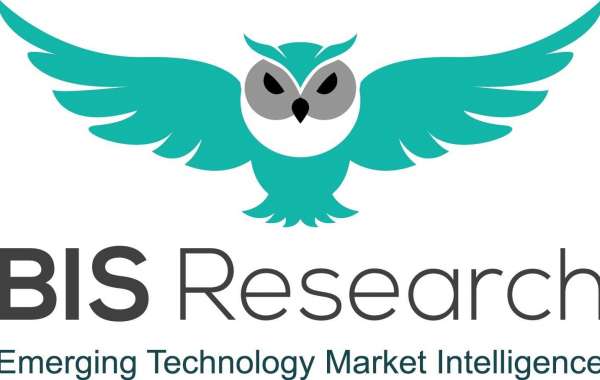Attention Deficit Hyperactivity Disorder (ADHD) is often thought of as a childhood condition, but it can persist into adulthood, affecting every aspect of life, including relationships. The impulsivity, distractibility, and hyperactivity associated with ADHD can create challenges in maintaining healthy and stable relationships. However, understanding these challenges and learning strategies to manage them can lead to more fulfilling and harmonious connections.
Understanding the Impact of ADHD on Relationships
Communication Breakdown
Communication is the foundation of any relationship, but ADHD can disrupt this crucial element. Individuals with ADHD may struggle to stay focused during conversations, often interrupting or missing key points. This can lead to misunderstandings and frustration for both partners. Additionally, the impulsive nature of ADHD can cause individuals to speak without thinking, leading to unintentional hurtful comments.
Emotional Dysregulation
ADHD is often accompanied by emotional dysregulation, meaning individuals may have difficulty managing their emotions. They might experience intense feelings of anger, frustration, or sadness, which can be overwhelming for both the person with ADHD and their partner. Emotional outbursts or mood swings can create a rollercoaster of emotions in the relationship, making it difficult to maintain stability.
Imbalance of Responsibilities
In relationships where one partner has causes of ADHD, there can be an imbalance of responsibilities. The non-ADHD partner may feel like they are carrying the majority of the load, whether it’s managing household chores, finances, or making important decisions. This imbalance can lead to resentment and feelings of being overwhelmed for the non-ADHD partner, while the ADHD partner may feel criticized or inadequate.
Impulsivity and Decision-Making
Impulsivity is a hallmark of ADHD and can manifest in various ways within a relationship. For example, an individual with ADHD may make impulsive purchases, engage in risky behaviors, or make decisions without consulting their partner. This can lead to conflicts, especially if the impulsive behavior has negative consequences, such as financial strain or broken trust.
Attention and Affection
ADHD can impact the ability to give and receive attention and affection. The partner with ADHD may become easily distracted, leading to moments where they seem inattentive or uninterested. This can make the non-ADHD partner feel neglected or unloved. On the other hand, individuals with ADHD may also crave constant attention and affection, which can be overwhelming for their partner.
Strategies for Managing ADHD in Relationships
Open and Honest Communication
Communication is key to managing ADHD in relationships. Both partners need to be open and honest about their feelings, needs, and concerns. It’s essential to discuss how ADHD affects the relationship and work together to find solutions. Regular check-ins can help ensure that both partners feel heard and understood.
Education and Awareness
Educating both partners about ADHD can foster understanding and empathy. When the non-ADHD partner learns about the challenges associated with the condition, they can better appreciate their partner’s struggles. Similarly, the partner with ADHD can gain insight into how their behavior impacts the relationship. There are many resources available, including books, articles, and support groups, that can provide valuable information.
Establishing Routines and Structures
Creating routines and structures can help manage the symptoms of ADHD and bring more stability to the relationship. For example, setting up a shared calendar, creating to-do lists, or establishing a weekly routine can help the ADHD partner stay organized and reduce the burden on the non-ADHD partner. Consistency is key, as it helps build habits that can mitigate the chaos that ADHD can bring.
Seeking Professional Help
Therapy can be incredibly beneficial for couples dealing with ADHD. Couples counseling can provide a safe space for both partners to express their feelings and work through challenges. Additionally, individual therapy or coaching for the ADHD partner can help them develop strategies to manage their symptoms. Cognitive-behavioral therapy (CBT) is particularly effective in helping individuals with ADHD improve their organizational and communication skills.
Medication Management
For many individuals with ADHD, medication is a crucial part of managing their symptoms. If medication is part of the treatment plan, it’s important for both partners to understand its role in managing ADHD. This includes being aware of potential side effects and discussing any concerns with a healthcare provider. Medication can help improve focus and reduce impulsivity, which can positively impact the relationship.
Setting Boundaries and Expectations
Establishing clear boundaries and expectations can prevent many of the common conflicts that arise in relationships affected by ADHD. Both partners should discuss their expectations regarding communication, responsibilities, and behavior. For example, if impulsive spending is an issue, the couple can agree on a spending limit or a rule that big purchases must be discussed beforehand. Clear boundaries help both partners feel respected and reduce the chances of misunderstandings.
Practicing Patience and Compassion
Managing ADHD in a relationship requires patience and compassion from both partners. It’s important to recognize that ADHD is a neurodevelopmental disorder, not a character flaw. The non-ADHD partner should avoid blaming or criticizing their partner for behaviors that are beyond their control. Instead, focusing on solutions and offering support can strengthen the relationship.
Fostering Emotional Intimacy
Emotional intimacy is crucial for a healthy relationship, and it requires effort from both partners. For the partner with ADHD, this might mean making a conscious effort to be present during conversations and showing appreciation for their partner’s efforts. For the non-ADHD partner, it might involve recognizing and celebrating the positive aspects of their partner’s ADHD, such as creativity or spontaneity. Regularly spending quality time together and engaging in activities that both partners enjoy can also help strengthen emotional bonds.
Addressing Co-occurring Conditions
ADHD often co-occurs with other mental health conditions, such as anxiety or depression. These additional challenges can further strain a relationship. It’s important for both partners to be aware of and address any co-occurring conditions. This might involve seeking treatment from a mental health professional, practicing self-care, or being extra supportive during difficult times.
Celebrating Strengths
ADHD comes with its own set of strengths, and it’s important to recognize and celebrate them within the relationship. Individuals with Symptoms of ADHD are often creative, energetic, and passionate. These qualities can bring excitement and innovation to the relationship. By focusing on strengths rather than just challenges, both partners can build a more positive and supportive relationship.
Conclusion
ADHD can undoubtedly present challenges in relationships, but with understanding, communication, and the right strategies, these challenges can be managed effectively. Both partners need to be committed to working together and supporting each other through the ups and downs. With patience, compassion, and a proactive approach, couples can build strong, resilient relationships that thrive despite the challenges of ADHD.









